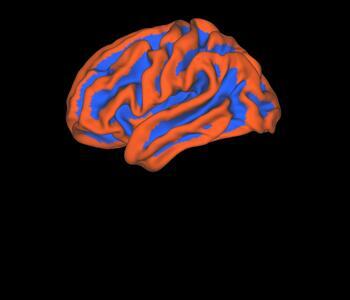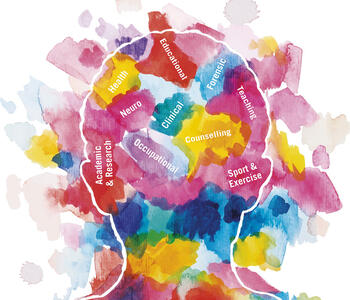

The Psychology major is a broad-based curriculum within a research-focused department. The program is designed both for students interested in a liberal arts education with psychology as a focal area and for students who plan to attend graduate or professional school either in psychology or in a different field such as medicine, law, social work, business administration, counseling, labor relations, and many others.
Concentrations
The breadth of the field is reflected in the concentrations that are available within the Psychology major.
New Psychology majors enter the program as "Psychology-None". This allows students time to determine which area(s) of Psychology are appropriate for them.
Generate a Psychology Degree Audit to see all the requirements needed to receive a degree and which transfer and University of Illinois courses have been used to satisfy those requirements.
![]() Most students wait until their junior or senior year to declare. When you're ready to declare a concentration, reach out to your academic advisor. An electronic form is submitted by your advisor to the LAS college office and your Degree Audit will reflect the change.
Most students wait until their junior or senior year to declare. When you're ready to declare a concentration, reach out to your academic advisor. An electronic form is submitted by your advisor to the LAS college office and your Degree Audit will reflect the change.
 |
The study of the biological mechanisms underlying behavior. Biological psychologists generally are interested in the brain and the nervous system, in the endocrine system, and in other organismic processes. |
 |
Clinical psychology is the study of problems encountered by individuals, groups, and families — especially problems involving psychopathology. Clinical psychologists are interested in the application of psychological knowledge and techniques for the alleviation of these problems. Community psychology is the study of the social processes and problems of groups, organizations, and neighborhoods, and the development and evaluation of progress for social change and social policy based on psychological understanding. |
 |
Understanding the neuroscientific bases of cognition. Various methods are employed to assess the roles of different brain systems in psychological functions such as memory, attention, language, executive control, decision-making, response processing, and emotion. |
 |
The study of basic behavioral and cognitive processes, including learning, memory, problem-solving, motivation, and language. |
 |
The study of intellectual development, emerging personality, and the acquisition of language, as well as psychophysiological and social development processes as individuals develop from birth through old age. |
 |
The study of psychological research focusing on prejudice, discrimination, race, ethnicity, gender, and other areas.
|
 |
The application of techniques of assessment, prediction, and intervention to areas of human resources in organizations, including, but not limited to, standard personnel selection and training, attitude assessments and interventions, and program evaluations. |
 |
Focuses on individual behavior. It is the study of ways to understand and describe an individual's behavior and to predict an individual's future behavior. |
 |
The study of attitudes, social perception and cognition, interpersonal relations, interpersonal interactions, and social and cultural factors affecting human behavior. |
 |
The most flexible concentration, allowing students to create their own concentration. Students may combine existing concentrations (Clinical/Community + Developmental, Behavioral Neuroscience + Cognitive Neuroscience, Industrial/Organizational + Social or Personality, Diversity Science + Clinical/Community, etc.) to design a major appropriate to their interests/career paths. |
Common Psychology Questions
How can I declare a concentration?
Psychology students enter the program as "Psychology-None". When you are ready to commit to a concentration, use the electronic form - https://apps.atlas.illinois.edu/FormBuilderSurvey/Survey/las_administration/student_academic_affairs/concentration_declaration_form_for_las_majors/
Can I have more than one concentration?
No, concentrations are single Psychology majors.
Can I switch concentrations?
Of course, students change focus all the time. We suggest declaring a concentration when you're fairly certain you will remain in it.
Can study abroad classes count?
Only with pre-approval from the Associate Head for Undergraduate Studies.
Can I generate a degree audit report for different concentrations?
Yes, you can create a degree audit for any major using the "Login to Generate an Audit" link on the Office of the Registrar's site and using the "Submit a New Audit" option.